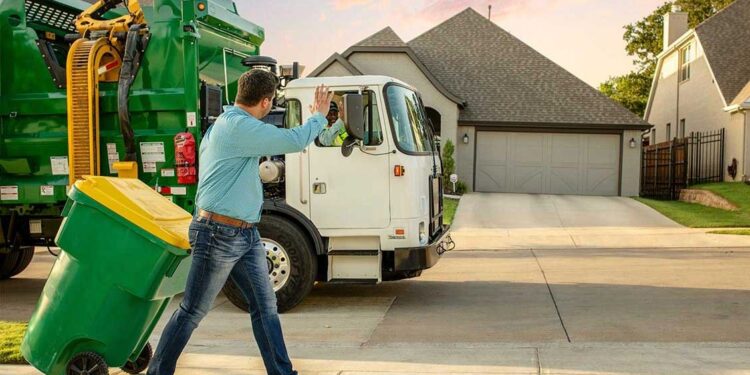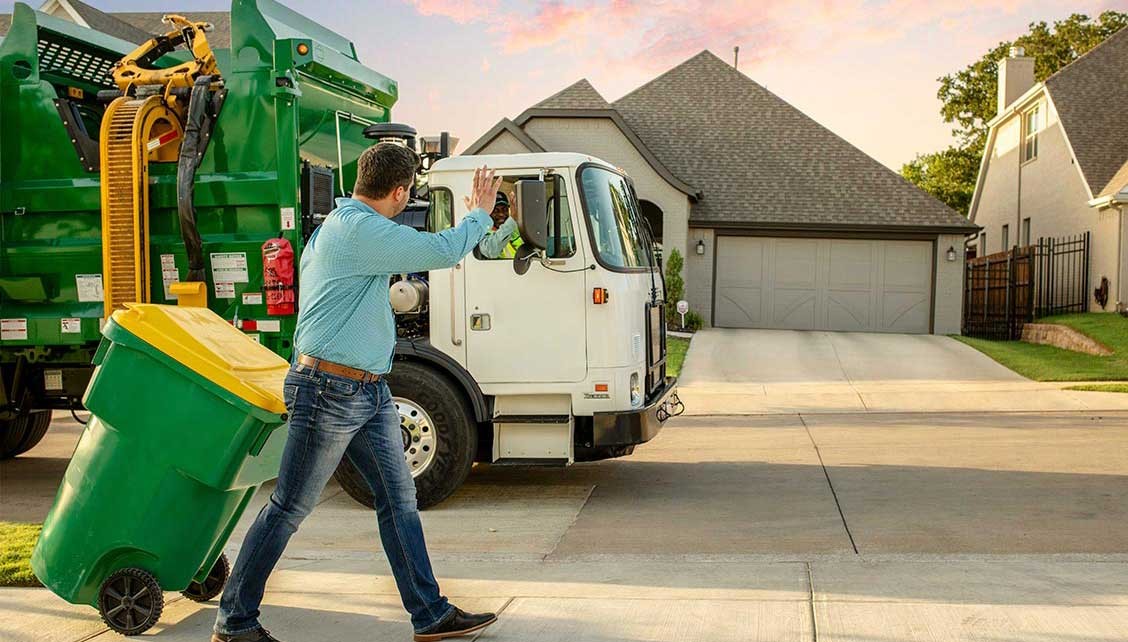The Critical Role of Consistent Trash Removal in Business Operations

Maintaining a clean and well-organized business environment is essential not only for making a great first impression but also for fostering long-term success. Customers today increasingly expect spotless spaces and associate cleanliness with quality, safety, and professionalism. Beyond aesthetics, a commitment to cleanliness supports employee well-being and boosts morale, creating a healthier and more productive workplace. Investing in reliable waste management solutions, such as regular trash pickup services, helps businesses stay on top of cleanliness challenges while reinforcing their reputation and enhancing customer satisfaction.

Table of Contents
- 1 The Role Of Cleanliness In Business Success
- 2 Types Of Waste Generated In Commercial Settings
- 3 Safety And Hygiene: Protecting Staff And Customers
- 4 Streamlining Operations Through Scheduled Pickup
- 5 Cost Considerations And Potential Savings
- 6 Customizing Services For Unique Business Needs
- 7 How To Choose The Right Trash Pickup Partner
- 8 Looking Ahead: Innovations In Commercial Waste Management
The Role Of Cleanliness In Business Success
Maintaining a spotless business environment is about more than just making a positive impression—it’s the foundation for a thriving commercial enterprise. Modern customers prioritize cleanliness at the top of their list when choosing where to shop, dine, or conduct business. Studies consistently find that cleanliness is closely tied to consumer behavior, with up to 92% of customers reporting they are more likely to revisit and recommend businesses that appear clean and well-maintained. By investing in regular and reliable waste management solutions such as Dallas trash pickup, companies can ensure trash is discreetly and professionally handled. This helps eliminate eyesores and odors that might otherwise discourage customers and affect their overall experience.
The emphasis on a tidy workspace extends far beyond optics. Cleanliness signals to clients and employees that a business cares about quality and safety. According to research on healthy environments, a commitment to cleanliness in work and public spaces can directly impact the overall well-being and satisfaction of both customers and employees. This research found that people are happier and feel more secure in spaces that are free of clutter and debris. When regular waste pickup becomes part of a company’s routine, it not only helps establish a trustworthy reputation but can also enhance employee morale and productivity by creating a healthy, pleasant setting in which to work.
Types Of Waste Generated In Commercial Settings
Businesses generate numerous types of waste depending on their industry and size. An office might accumulate mountains of paper documents, outdated electronics, coffee cups, and lunch leftovers. Restaurants, on the other hand, must deal with an ongoing flood of food waste, packaging, disposable service ware, and occasionally grease or oil. Retailers often manage a mix of cardboard, individual product packaging, plastics, unused promotional materials, and expired inventory. Even more specialized businesses—such as automotive shops, clinics, or construction firms—can generate hazardous materials, including solvents, batteries, and medical waste. The sheer diversity of these materials presents a management challenge, especially when recyclable, compostable, and dangerous items all end up in the same bins.
Creating a tailored waste management solution is key to efficiently collecting, sorting, and disposing of various types of business waste. Without proper organization and scheduled pickups, trash can pile up quickly, making effective sorting and recycling nearly impossible. For many businesses, flexibility in collection frequency and container size is crucial for maintaining control over every waste stream, ensuring that nothing is overlooked and that the process remains environmentally responsible.
Safety And Hygiene: Protecting Staff And Customers
The health and safety of employees and patrons hinge on more than clean floors and shiny counters; it also depends on how effectively waste is managed behind the scenes. Trash left inside or near a commercial property can quickly become a magnet for pests such as rodents or insects, both of which are known to carry diseases. Worse still, decaying waste produces foul odors and serves as a breeding ground for bacteria, creating a cascading effect with profound health implications.
Regulatory agencies have established clear rules for businesses on how to handle, store, and dispose of waste. These rules aim to protect workers from hazardous exposures and prevent injury due to clutter or spills. Regular trash pickup, whether daily or weekly, depending on the volume, has been proven to reduce workplace accidents, lower the risk of infections, and help businesses steer clear of costly fines or negative publicity. When waste removal is consistent and professional, it provides peace of mind to staff, letting them focus on their tasks without worrying about hygiene concerns lurking in the background.
Streamlining Operations Through Scheduled Pickup
Having a set schedule for trash pickup is a powerful way to streamline daily operations. Businesses with recurring collection routines spend less time scrambling to find space for overflow waste or responding to emergency removal requests. Instead, they benefit from a predictable process that allows them to focus on their core duties.
Overflowing dumpsters and garbage rooms not only disrupt business activities but can also invite complaints from neighbors, citations from health inspectors, or even increased insurance costs linked to fire hazards or pest attraction. Consistent, reliable pickups prevent these issues from snowballing. Employees are freed from the burden of managing overfilled bins, allowing them to dedicate their time to enhancing customer service and driving business growth.
Cost Considerations And Potential Savings
At first glance, regular commercial trash pickup may be viewed purely as an expense, but businesses that evaluate their total waste management picture often discover real savings. Emergency cleanups, last-minute pickups, or dealing with a pest infestation resulting from neglected waste can all be surprisingly expensive. With scheduled service, surprise fees disappear, and businesses gain predictable monthly bills that are easier to manage within a budget.
Efficient waste planning also enables companies to tailor services to their actual needs, choosing the right container size and the optimal pickup frequency. This tailored approach stops businesses from paying for unused capacity or shouldering overage penalties. Studies show that organizations that regularly review and adjust their waste contracts based on actual usage consistently save money over those with a set-it-and-forget-it approach. In a competitive marketplace, every dollar counts—and streamlined waste management is one of the easiest wins.
Customizing Services For Unique Business Needs
Each business is as unique as the products or services it offers, and its waste management plan should reflect that. Whether a small coffee shop with minimal trash or a multi-floor corporate office generating large volumes of paper, customized solutions ensure efficiency and compliance. Flexible options range from simple weekly pickups and small bins to daily collections and specialized containers for recyclables or hazardous waste.
Some businesses, such as healthcare providers or manufacturers, require regulatory oversight for safe disposal. Flexible waste partners make it easy to adjust container size and collection frequency or even add extra pickups during busy seasons. This adaptability enables companies to maintain clean facilities, adhere to legal standards, and demonstrate a commitment to sustainability and customer satisfaction.
How To Choose The Right Trash Pickup Partner
Not all waste management providers offer the same level of reliability or customer service, so choosing carefully matters. Look for companies with strong track records and verified customer reviews. It’s important to evaluate vendors based not only on pricing but on their timeliness, flexibility, and commitment to sustainable practices that align with your company’s values.
- Research online reviews and ask for business references.
- Assess their recycling and sustainability offerings.
- Make sure their collection schedule is flexible enough for your needs.
- Insist on transparent, itemized quotes with no hidden fees.
- Choose a provider familiar with local regulations and known for eco-conscious practices.
By prioritizing these criteria, organizations can find a waste management partner that delivers not just a cleaner business but also peace of mind and future-ready solutions.
Looking Ahead: Innovations In Commercial Waste Management
Waste management technology is evolving rapidly, offering new ways for businesses to operate responsibly and efficiently. Innovations, such as smart trash bins equipped with fill-level sensors, enable service providers to optimize collection schedules, reduce costs, and prevent overflows. Data-driven waste tracking lets companies analyze their output over time and set more ambitious recycling or reduction goals.
Composting programs are becoming increasingly common, diverting food and organic waste from landfills and turning it into valuable products for agriculture. Businesses that pioneer or adopt these changes not only position themselves as sustainability leaders but prepare for stricter regulations and changing customer expectations. Embracing these future-forward programs ensures both efficient and environmentally sound operations.

